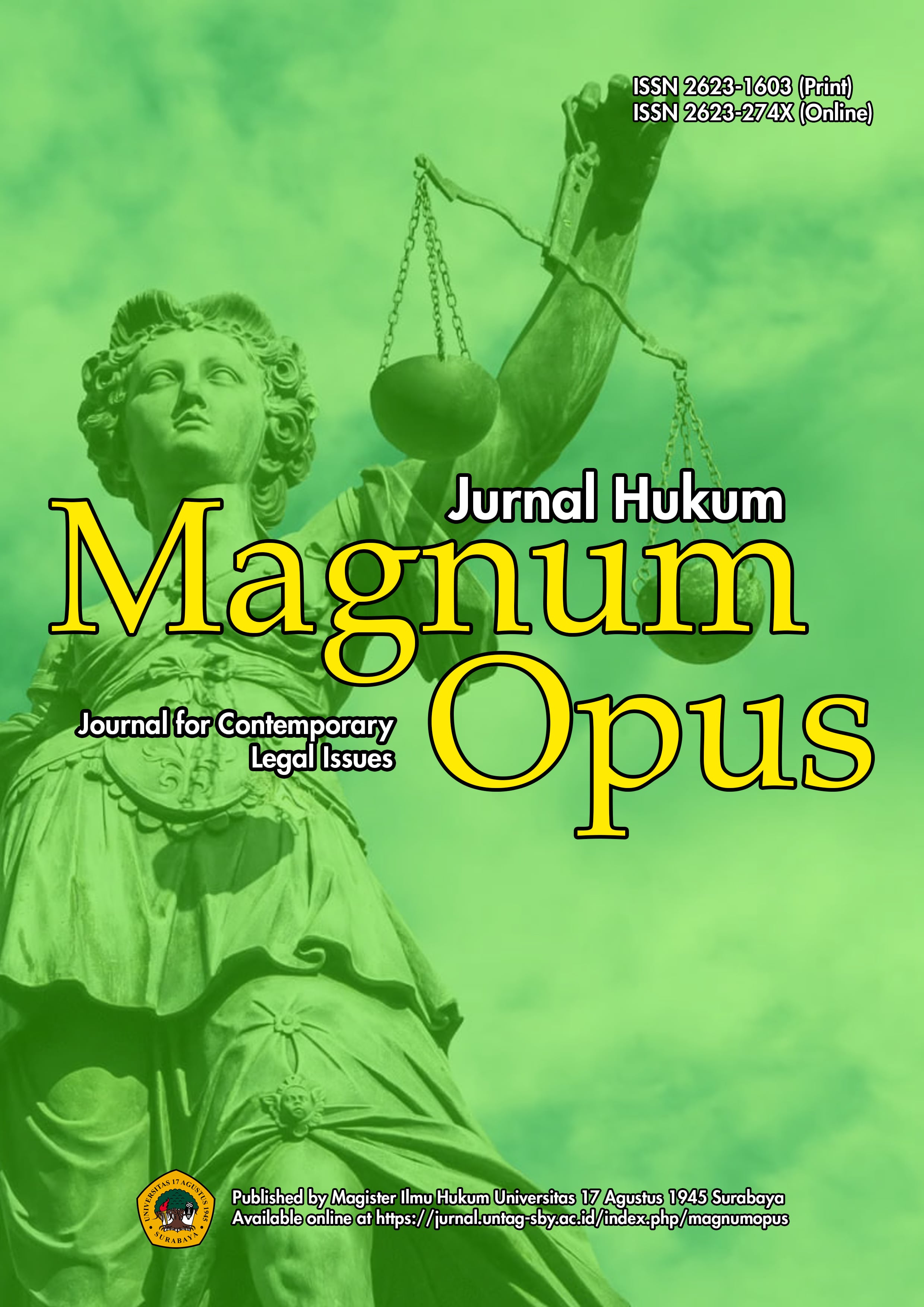Legal Certainty of Non-Prime Offender Provisions in Justice Collaborator Criteria
DOI:
https://doi.org/10.30996/jhmo.v7i2.10767Keywords:
Legal Certainty, Determination of Non-Prime Offender, Justice CollaboratorAbstract
The judge's determination that the defendant was not the main perpetrator in the verdict of premeditated murder case number 798/Pid.B/2022/Pn.Jkt.Sel, involves the role of a justice collaborator, which requires the perpetrator to not be the main offender. Normatively, the absence of a clear definition leads to legal uncertainty. Therefore, establishing the criteria for not being the main perpetrator can be achieved through theoretical interpretation of the participation offenses related to Defendant Eliezer. Analysis of existing types of participation offenses indicates that those involved in the act (medeplegen) are not considered the main perpetrators, whereas individuals who encourage, instigate, and intend for the action to occur are deemed the main perpetrators. Consequently, based on his role, position, and authority in committing the crime, Defendant Eliezer is categorized as not the main perpetrator. The criteria for this determination focus on the individual with the greatest role and responsibility. The purpose of this research is to explore the legal certainty surrounding the determination of the main perpetrator as a criterion for becoming a justice collaborator, which lacks normative clarification. This research employs a normative juridical method with a conceptual approach, along with legislative and case study analysis. The findings indicate that the legal certainty in determining the non-main perpetrator, as a criterion for a collaborating witness in revealing premeditated murder cases involving Defendant Eliezer, lacks dogmatic legal certainty. The Criminal Code does not explicitly define the classification of non-main perpetrators within the doctrine of participation, but Articles 55-56 of the Criminal Code address the punishment for individuals involved in crimes committed collectively.
Downloads
Downloads
Published
Issue
Section
License
Authors who publish with Jurnal Hukum Magnum Opus agree to the following terms:
- Authors transfer the copyright and grant the journal right of first publication with the work simultaneously licensed under a Creative Commons Attribution-ShareAlike 4.0 International License.. that allows others to share the work with an acknowledgement of the work's authorship and initial publication in this journal.
- Authors are able to enter into separate, additional contractual arrangements for the non-exclusive distribution of the journal's published version of the work (e.g., post it to an institutional repository or publish it in a book), with an acknowledgement of its initial publication in this journal.
- Authors are permitted and encouraged to post their work online (e.g., in institutional repositories or on their website) prior to and during the submission process, as it can lead to productive exchanges, as well as earlier and greater citation of published work (See The Effect of Open Access)













